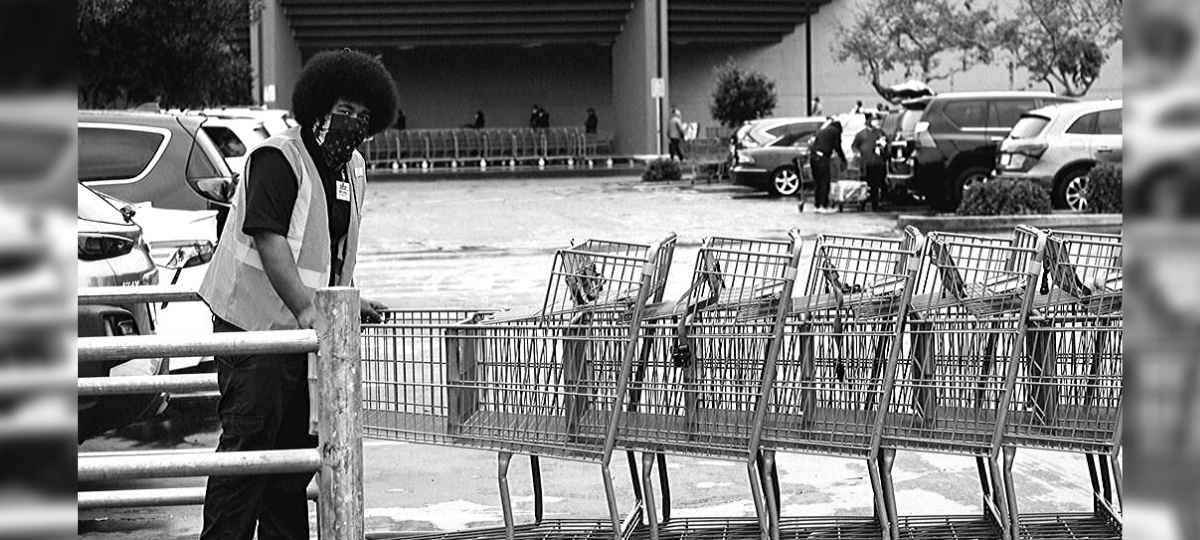COVID-19 is likely to change forever how we manage our everyday activities. It should also change how we value the work of first responders and the many low-wage workers who deliver our goods, stock grocery shelves, greet us at the cash register, and assist in hospitals and nursing homes.
In a pandemic, the corporate CEO is extremely irrelevant while the person pushing the hospital gurney and the nurse waiting to receive it, are the most important people in the world. It’s called perspective, and perspective changes as situations change. Hopefully, we do not forget the value of those carrying us through these trying times.
Until a few months ago, we lived in a society where the perspective on the value of workers—i.e., the amount of money a corporation is willing to pay for a position—was determined by “important people” at the top of the corporation. The CEO was worth a great deal of money; most workers were assigned little value.
The pay ratio between the CEOs of large corporations and the bottom worker has increased from 20:1 in 1950 to somewhere between 221 to 361:1 today. Corporate communications promote the CEO as a management genius, technology innovator, and deliverer of great wealth. We are told CEOs are hard to find, and they need to be paid very well. Otherwise, they will leave for higher compensation elsewhere.
COVID-19 is forcing us to rethink the value of CEOs as they retreat to the safety of the Hamptons and seek federal funds to replace monies used for stock buybacks. As the virus lingers, Americans know that there is a massive federal government inability to develop testing for the virus. They also know CEOs and large corporations are unable to manufacture and distribute the supplies needed for massive testing.
Meanwhile, Americans see and hear stories of those on the front line of the battle. Not only doctors and nurses, but people who drive ambulances, cashiers at food stores, care workers in nursing homes, waitstaff, meat packers—all at risk by having close contact with people who have or may have the virus. A March 21, 2020 article in Politico describes these 24 million people as “low pay, high contact,” with incomes of: cashiers, $22,430; Waitstaff, $21,780; personal care aides, $24,020; food preparation staff, $32,450 and home health aides, $24,200.
It is estimated that three in ten jobs in the U.S., about 35-40 million jobs, require physical proximity to others. Of those jobs, 70% are low wage service or blue-collar jobs.
We could go a little further up the income scale to somewhat higher-paid professionals like police, fire, teachers, all requiring close contact with others at personal risk.
What all these people have in common is that they get up every day to make our country function. They work with empathy toward others, loyalty to country, and bravery by risking their lives for a low level of compensation.
A missing CEO is merely replaced by one of many people believing they can do a better job. Low-wage workers are merely ignored unless they do something that offends us, then all types of negative comments are inflicted on them. Why can’t we see their character, their struggle and most importantly, the value they create by keeping the world moving forward?
The poem, Gunga Din, by Rudyard Kipling, helps us visualize the difficulties of seeing a person’s value, until that person can no longer help us. It is a poem about a Hindu, water-fetching servant in the British army, in India, in 1892. Gunga Din is continuously abused by a ruthless, demeaning soldier but continues delivering water to all soldiers in need. He saves the life of the soldier who beat him. As Gunga Din dies, Kipling captures the soldier realizing the worth of a water-fetcher:
Though I’ve belted you and flayed you,
By the livin’ Gawd that made you,
You’re a better man than I am, Gunga Din!
Kipling helps us understand that a person can possess honor and heroic character no matter what their status in life. Those on the front lines of the pandemic and the low-wage earners who keep society going, even in a pandemic, are a modern-day Gunga Din. It is now time for business leaders, and all of us, to appreciate the value of these people, by matching their compensation to the services performed and risk taken, even if it means we all take a little less out of the till.





4 comments
… [Trackback]
[…] There you will find 39687 additional Information to that Topic: thelibertarianrepublic.com/taking-for-granted-what-we-obtain-too-cheap/ […]
… [Trackback]
[…] Find More to that Topic: thelibertarianrepublic.com/taking-for-granted-what-we-obtain-too-cheap/ […]
… [Trackback]
[…] Information to that Topic: thelibertarianrepublic.com/taking-for-granted-what-we-obtain-too-cheap/ […]
… [Trackback]
[…] Find More on that Topic: thelibertarianrepublic.com/taking-for-granted-what-we-obtain-too-cheap/ […]